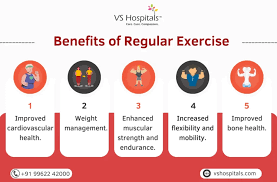In today’s fast-paced world, where stress and poor diet are common, fitness health has become essential for a long and happy life. Many people think fitness is only about physical appearance, but true health and fitness combine physical strength, mental wellness, and emotional balance.
Let’s dive deep into the meaning, benefits, and ways to improve your overall fitness health and how it can transform your lifestyle.
 What is Fitness Health?
What is Fitness Health?
Fitness health refers to a state of complete well-being that includes physical fitness, mental fitness, and emotional strength. It means having the energy, strength, and flexibility to carry out daily tasks without getting tired. It also means managing stress, thinking clearly, and feeling motivated.
A good fitness lifestyle doesn’t just focus on weight loss or six-pack abs. Instead, it supports a strong body, sharp mind, and a balanced life.
Importance of Fitness Health
1. Prevents Chronic Diseases
Exercise for health helps prevent heart disease, obesity, diabetes, and high blood pressure. A regular fitness routine improves blood circulation, strengthens the heart, and keeps your metabolism working smoothly.
2. Boosts Mental Fitness
Physical activity boosts mental fitness by releasing endorphins—the “happy hormones.” It helps manage stress, reduce anxiety, and improve sleep quality. A healthy mind is just as important as a healthy body.
3. Increases Energy and Productivity
When you follow a consistent fitness lifestyle, your energy levels increase, and you feel more active throughout the day. This allows you to perform better at work, home, or school.
4. Enhances Confidence and Self-Esteem
Seeing improvements in your fitness journey builds confidence. You start believing in yourself more, which is reflected in your attitude and performance.
5. Supports Long-Term Wellness
Staying fit as you age improves flexibility, reduces injury risk, and helps maintain independence in old age.
Include the following components in your lifestyle:
1. Physical Activity
Include a mix of
-
Cardio (walking, running, cycling)
-
Strength training (weights, resistance bands)
-
Flexibility workouts (yoga, stretching)
Aim for at least 150 minutes of moderate exercise every week. These workout plans keep your body strong and flexible.
2. Nutrition
Pair your exercise with a balanced diet and fitness plan. Your meals should include:
-
Fruits and vegetables
-
Lean proteins (chicken, fish, tofu)
-
Whole grains (brown rice, oats)
-
Healthy fats (nuts, olive oil)
-
Water (8–10 glasses per day)
Avoid junk food, soda, and sugary snacks that slow down your fitness goals.
3. Mental Wellness
Take time to:
-
Meditate
-
Practice gratitude
-
Manage stress
-
Sleep 7–9 hours per night
Mental fitness helps you stay focused and reduces burnout.
How to Start Your Fitness Journey

1. Set Realistic Fitness Goals
Don’t aim for perfection. Start small—like walking 30 minutes daily, doing 10 push-ups, or drinking more water. These habits lead to big results.
2. Create a Consistent Fitness Routine
Set a fixed time every day to work out. This habit builds discipline and helps your body adjust to regular activity.
3. Try Home Workout Ideas
You don’t need a gym to get fit. Do squats, lunges, planks, or dance workouts at home to improve your physical fitness.
4. Eat Clean and Plan Ahead
Prepare meals in advance to avoid unhealthy cravings. Carry healthy snacks like fruits, boiled eggs, or nuts when you go out.
5. Stay Hydrated
Water helps digestion, circulation, and energy levels. Hydration is a key part of your healthy lifestyle.
Common Fitness Myths
Myth 1: Fitness is only about losing weight.
Truth: Fitness health is about energy, mental clarity, and strength—not just the number on the scale.
Myth 2: You need expensive gym equipment.
Truth: Many people stay fit using their body weight or low-cost tools like resistance bands.
Myth 3: You must follow strict diets.
Truth: A simple, balanced diet and fitness plan is more effective than a restrictive one.
Fitness for All Ages

-
Children: Encourage outdoor games, sports, and active play.
-
Teenagers: Introduce them to fun fitness routines like dancing, yoga, or cycling.
-
Adults: Combine strength training with cardio to manage weight and energy.
-
Elderly: Light exercise like walking, chair yoga, and stretching promotes flexibility and healthy aging.
Challenges in Staying Fit

Many people face issues such as
-
Lack of time
-
Low motivation
-
Unhealthy food temptations
Overcome these by creating short workout plans, preparing meals in advance, and tracking your progress with a fitness app or journal.
Fitness and Happiness: A Powerful Connection
Exercise reduces stress and makes you feel positive. As you gain control over your health, you also gain confidence and joy in other areas of life.
Final Thoughts
It improves how you feel, how you think, and how you live. By focusing on regular exercise, a healthy lifestyle, and mental well-being, you unlock your best version.
You don’t need to be perfect—just stay consistent. Every small step you take, whether it’s a healthy meal or a 10-minute walk, moves you closer to your best life.
Start your fitness journey today. You owe it to your future self. wikipedia

